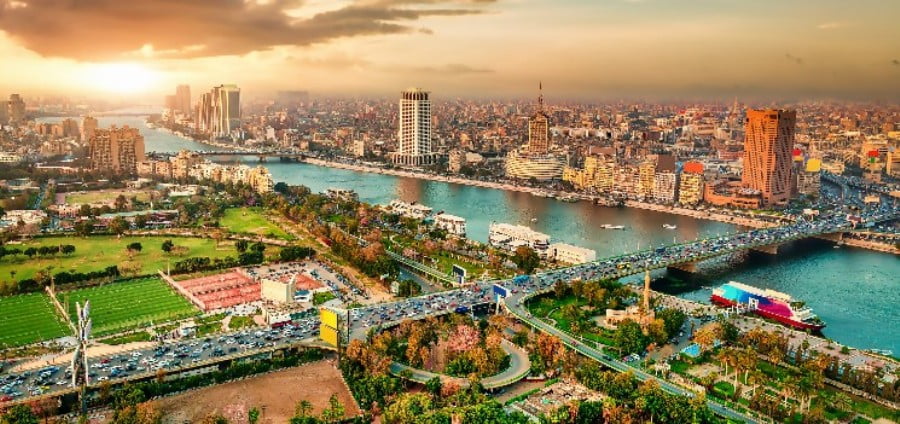The European Bank for Reconstruction and Development (EBRD) and the Climate Governance Initiative (CGI) are supporting the launch of Chapter Zero Egypt to promote the understanding and adoption of effective climate governance practices among corporates and financial institutions in the country.
CGI’s global network of more than 25 national and regional chapters promotes the adoption of the Principles for Effective Climate Governance published by the World Economic Forum (WEF). Established in 2019, CGI aims to equip its members with the skills and knowledge to make addressing climate change a boardroom priority.
Chapter Zero Egypt is the 27th chapter to join the CGI global network. It is also the first in Africa and the southern and eastern Mediterranean region and has the technical support of BDO Egypt consulting and LOBBY EGYPT Communication Advisory.
This new platform will enable the development and sharing of expertise between non-executive directors, senior management business leaders and policy and technical experts to ensure that good climate governance practices are communicated to boost low-carbon development, sustainable enterprise and economic growth.
The EBRD supports the establishment of this new chapter as part of a partnership with CGI to enhance boards’ understanding of how climate risks could affect their business in regions that are a key focus for the Bank. In April 2022 the EBRD and CGI partnered up to promote the climate governance of companies. The partnership includes training non-executive directors on climate-related risks and their implications for business, aiming to boost the capacity of boards to move towards a net-zero economy.
Today’s event was attended by the Minister of Petroleum and Mineral Resources in Egypt, Tarek El Molla, the Minister of Environment in Egypt, Yasmine Fouad, EBRD Head of Egypt office, Khalid Hamza, Chair of the Climate Governance Initiative’s Governing Board and Chair of Chapter Zero Egypt, Julie Baddeley, and representatives from the field of development and academia.
The EBRD’s Head of Egypt, Khalid Hamza, said: “We are very proud to support the launch of this strategic initiative together with CGI to help address climate change at the company level and achieve systemic impact. Private-sector leaders in Egypt have a significant role in steering their organizations towards more resilient, low-carbon and sustainable business models. By supporting policy engagement and stepping up capacity development, Chapter Zero Egypt will accelerate progress in the green transition of Egypt’s economy.”
The Chairman of Chapter Zero Egypt, Ahmed El Sewedy, President and CEO of El Sewedy Electric, stressed the need to unite efforts between companies, members of civil society, and stakeholders, to reduce the impact of climate change and adopt policies that ensure sustainable development, promote growth and competitiveness. He expressed appreciation to the EBRD, and to the Climate Governance Initiative, for their continuous support to establish the Association.
Julie Baddeley, Chairman of the Climate Governance Initiative, said: “We’re delighted to welcome Chapter Zero Egypt to the Climate Governance Initiative’s global network. With its core mission to accelerate climate action in Egyptian organizations, driven by a founding group of passionate patron chairs and committee members, Chapter Zero Egypt is primed to deliver real impact for its members and the stakeholders their organizations touch. We look forward to working with the Chapter on this vital mission.”
To support the mitigation of global environmental risks, the EBRD’s Green Economy Transition (GET) approach for 2021-25 prioritizes investments that advance the transition to a green, environmentally sustainable economy. The GET approach aims to raise the ratio of EBRD green financing to more than 50 per cent of the Bank’s annual investment by 2025.
In the EBRD regions, numerous regulators and central banks have taken steps to address climate change risk by joining the Network of Central Banks and Supervisors for Greening the Financial System (NGFS), including the Financial Regulatory Authority of Egypt, Bank Al-Maghrib in Morocco, the Central Bank of Jordan, and the Central Bank of Tunisia.
Egypt is a founding member of the EBRD. Since the Bank began operating there in 2012, it has invested €10.4 billion in 164 projects.

